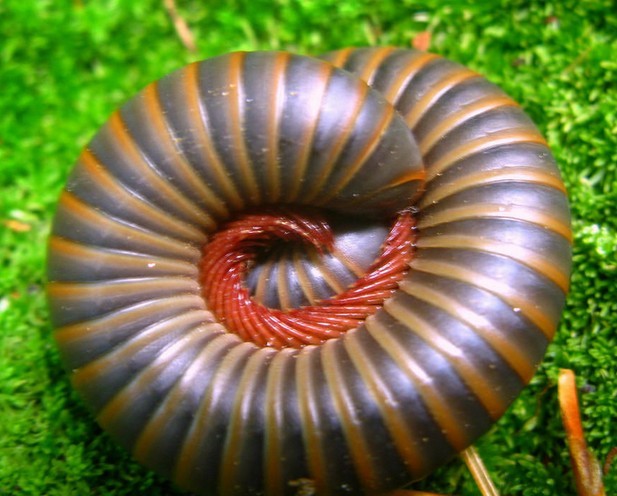北亚世界文化遗产,第一个站点是Itchan卡拉,文化遗产有10个。北亚世界文化遗产,俄罗斯是最上的网站7网站,其中一个是交界的属性共享蒙古在亚洲东部。从该地区的第一个站点Itchan卡拉1990年在乌兹别克斯坦题写。每年,联合国教科文组织世界遗产委员会可以记下新的网站列表,或摘牌,不再符合标準的网站。
基本介绍
- 中文名:北亚世界文化遗产
- 外文名:North of the world cultural heritage
- 第一个站点:Itchan卡拉
- 文化遗产:10个
简介
北亚世界文化遗产,俄罗斯是最上的网站7网站,其中一个是交界的属性共享蒙古在亚洲东部。从该地区的第一个站点Itchan卡拉1990年在乌兹别克斯坦题写。每年,联合国教科文组织世界遗产委员会可以记下新的网站列表,或摘牌,不再符合标準的网站。 选择是基于十个标準:6个文化遗产(i-vi)和四个自然遗产(vii-x)。一些网站,指定“混合网站”,代表着两种文化和自然遗产。 在亚洲北部和中部,有11个文化、8自然,没有複杂的网站。 所有的俄罗斯的网站(7)是自然和除外Sayarka在中亚,所有的网站都是文化。
列表
| Site | Image | Location | Criteria | Area ha (acre) | Year | Description | Refs |
|---|---|---|---|---|---|---|---|
| Central Sikhote-Alin | Primorsky Krai,Russia 45°20′N136°10′E / 45.333°N 136.167°E | Natural: (x) | 1,553,928 (3,839,840); buffer zone 65,250 (161,200) | 2001 | The Sikhote-Alin mountain range contains one of the richest and most unusual temperate forests of the world. In this mixed zone between taiga and subtropics, southern species such as the tiger and Himalayan bear cohabit with northern species such as the brown bear and lynx. The site stretches from the peaks of Sikhote-Alin to the Sea of Japan and is important for the survival of many endangered species such as the Amur tiger. | ||
| Golden Mountains of Altai | Altai Republic,Russia 50°28′N86°0′E / 50.467°N 86.000°E | Natural: (x) | 1,611,457 (3,982,000) | 1998 | The Altai mountains in southern Siberia form the major mountain range in the western Siberia biogeographic region and provide the source of its greatest rivers – the Ob and the Irtysh. Three separate areas are inscribed: Altaisky Zapovednik and a buffer zone around Lake Teletskoye; Katunsky Zapovednik and a buffer zone around Mount Belukha; and the Ukok Quiet Zone on the Ukok plateau. The region represents the most complete sequence of altitudinal vegetation zones in central Siberia, from steppe, forest-steppe, mixed forest, subalpine vegetation to alpine vegetation. The site is also an important habitat for endangered animal species such as the snow leopard. | ||
| Historic Centre of Bukhara | Bukhara Province,Uzbekistan 39°46′29″N64°25′43″E / 39.77472°N 64.42861°E | Cultural: (ii), (iv), (vi) | — | 1993 | |||
| Historic Centre of Shakhrisyabz | Qashqadaryo Province,Uzbekistan 39°3′0″N66°50′0″E / 39.05000°N 66.83333°E | Cultural: (iii), (iv) | 240 (590); buffer zone 82 (200) | 2000 | |||
| Itchan Kala | Khiva,Xorazm Province,Uzbekistan 41°22′42″N60°21′50″E / 41.37833°N 60.36389°E | Cultural: (iii), (iv), (v) | 26 (64) | 1990 | |||
| Kunya-Urgench | Daşoguz Province,Turkmenistan 42°10′59″N59°5′6″E / 42.18306°N 59.08500°E | Cultural: (ii), (iii) | — | 2005 | |||
| Lake Baikal | Irkutsk OblastandRepublic of Buryatia,Russia 53°10′25″N107°39′45″E / 53.17361°N 107.66250°E | Natural: (vii), (viii), (ix), (x) | 8,800,000 (22,000,000) | 1996 | Situated in south-east Siberia, the 3.15-million-ha Lake Baikal is the oldest (25 million years) and deepest (1,700 m) lake in the world. It contains 20% of the world's total unfrozen freshwater reserve. Known as the 'Galapagos of Russia', its age and isolation have produced one of the world's richest and most unusual freshwater faunas, which is of exceptional value to evolutionary science. | ||
| Lena PillarsNature Park | Sakha Republic,Russia 60°40′0″N127°0′0″E / 60.66667°N 127.00000°E | Natural: (viii) | 1,272,150 (3,143,600) | 2012 | |||
| Mausoleum of Khoja Ahmed Yasawi | Turkestan,South Kazakhstan Province,Kazakhstan 43°17′35″N68°16′28″E / 43.29306°N 68.27444°E | Cultural: (i), (iii), (iv) | 0.55 (1.4); buffer zone 88 (220) | 2003 | |||
| Natural System of Wrangel Island Reserve | Chukotka Autonomous Okrug,Russia 71°11′20″N179°42′55″E / 71.18889°N 179.71528°E | Natural: (ix), (x) | 916,300 (2,264,000); buffer zone 3,745,300 (9,255,000) | 2004 | Located well above the Arctic Circle, the site includes the mountainous Wrangel Island (7,608 km2), Herald Island (11 km2) and surrounding waters. Wrangel was not glaciated during the Quaternary Ice Age, resulting in exceptionally high levels of biodiversity for this region. The island boasts the world’s largest population of Pacific walrus and the highest density of ancestral polar bear dens. It is a major feeding ground for the grey whale migrating from Mexico and the northernmost nesting ground for 100 migratory bird species, many endangered. Currently, 417 species and subspecies of vascular plants have been identified on the island, double that of any other Arctic tundra territory of comparable size and more than any other Arctic island. Some species are derivative of widespread continental forms, others are the result of recent hybridization, and 23 are endemic. | ||
| Parthian Fortresses of Nisa | Bagyr settlement,Ruhabat District,Ahal Province,Turkmenistan 37°59′59″N58°11′55″E / 37.99972°N 58.19861°E | Cultural: (ii), (iii) | 78 (190); buffer zone 400 (990) | 2007 | |||
| Petroglyphs within the Archaeological Landscape of Tamgaly | Almaty Province,Kazakhstan 43°48′12″N75°32′6″E / 43.80333°N 75.53500°E | Cultural: (iii) | 900 (2,200); buffer zone 2,900 (7,200) | 2004 | |||
| Proto-urban site of Sarazm | — | Panjakent,Tajikistan 39°30′28″N67°27′37″E / 39.50778°N 67.46028°E | Cultural: (ii), (iii) | 16 (40); buffer zone 142 (350) | 2010 | ||
| Putorana Plateau | Krasnoyarsk Krai,Russia 69°2′49″N94°9′29″E / 69.04694°N 94.15806°E | Natural: (vii), (ix) | 1,887,251 (4,663,500); buffer zone 1,773,300 (4,382,000) | 2010 | This site coincides with the area of the Putoransky State Nature Reserve, and is located in the central part of the Putorana Plateau in northern Central Siberia. It is situated about 100km north of the Arctic Circle. The part of the plateau inscribed on the World Heritage List harbours a complete set of subarctic and arctic ecosystems in an isolated mountain range, including pristine taiga, forest tundra, tundra and arctic desert systems, as well as untouched cold-water lake and river systems. A major reindeer migration route crosses the property, which represents an exceptional, large-scale and increasingly rare natural phenomenon. | ||
| Samarkand – Crossroads of Cultures | Samarqand Province,Uzbekistan 39°40′7″N67°0′0″E / 39.66861°N 67.00000°E | Cultural: (i), (ii), (iv) | 965 (2,380) | 2001 | |||
| Saryarka — Steppe and Lakes of Northern Kazakhstan | AkmolaandKostanay Provinces,Kazakhstan 50°26′N69°11′E / 50.433°N 69.183°E | Natural: (ix), (x) | 450,344 (1,112,820); buffer zone 211,148 (521,760) | 2008 | |||
| Silk Roads: the Routes Network of Chang'an-Tianshan Corridor | 22 sites inChina:Luoyang,LingbaoandXin'anofHenan Province;Xi'an,Bin CountyandChengguofShaanxi Province;Tianshui,Yongjing,DunhuangandAnxiofGansu Province;Turpan,JimsarandKuqaofXinjiang Uyghur Autonomous Region. 8 sites inKazakhstan:Almaty ProvinceandJambyl Province. 3 sites inKyrgyzstan:Chuy Province | Cultural: (ii)(iii)(iv)(vi) | 42,668.16 (105,435.3); buffer zone189,963.13 (469,409.1) | 2014 | |||
| State Historical and Cultural Park “Ancient Merv” | Mary Province,Turkmenistan 37°42′3″N62°10′39″E / 37.70083°N 62.17750°E | Cultural: (ii), (iii) | 353 (870); buffer zone 883 (2,180) | 1999 | |||
| Sulaiman-Too Sacred Mountain | Osh,Kyrgyzstan 40°31′52″N72°46′58″E / 40.53111°N 72.78278°E | Cultural: (iii), (vi) | 112 (280); buffer zone 4,788 (11,830) | 2009 | |||
| Tajik National Park (Mountains of the Pamirs) | — | Tajikistan 38°45′54″N72°18′19″E / 38.76500°N 72.30528°E | Natural: (vii), (viii) | 2,611,674 (6,453,590) | 2013 | ||
| Uvs Nuur Basin | Uvs,ZavkhanandKhövsgöl ProvincesMongolia*;Mongun-Tayginsky,Ovyursky,Tes-KhemskyandErzinsky Districts,Tuva Republic,Russia* 50°16′30″N92°43′1″E / 50.27500°N 92.71694°E | Natural: (ix), (x) | 898,064 (2,219,160); buffer zone 170,790 (422,000) | 2003 | The Uvs Nuur Basin is the northernmost of the enclosed basins of Central Asia. It takes its name from Uvs Nuur Lake, a large, shallow and very saline lake, important for migrating birds, waterfowl and seabirds. The site is made up of twelve protected areas representing the major biomes of eastern Eurasia. The steppe ecosystem supports a rich diversity of birds and the desert is home to a number of rare gerbil, jerboas and the marbled polecat. The mountains are an important refuge for the globally endangered snow leopard, mountain sheep (argali) and the Asiatic ibex. | ||
| Volcanoes of Kamchatka | Kamchatka Krai,Russia 56°20′N158°30′E / 56.333°N 158.500°E | Natural: (vii), (viii), (ix), (x) | 3,830,200 (9,465,000) | 1996 | This is one of the most outstanding volcanic regions in the world, with a high density of active volcanoes, a variety of types, and a wide range of related features. The six sites included in the serial designation group together the majority of volcanic features of the Kamchatka peninsula. The interplay of active volcanoes and glaciers forms a dynamic landscape of great beauty. The sites contain great species diversity, including the world's largest known variety of salmonoid fish and exceptional concentrations of sea otter, brown bear and Stellar's sea eagle. |




